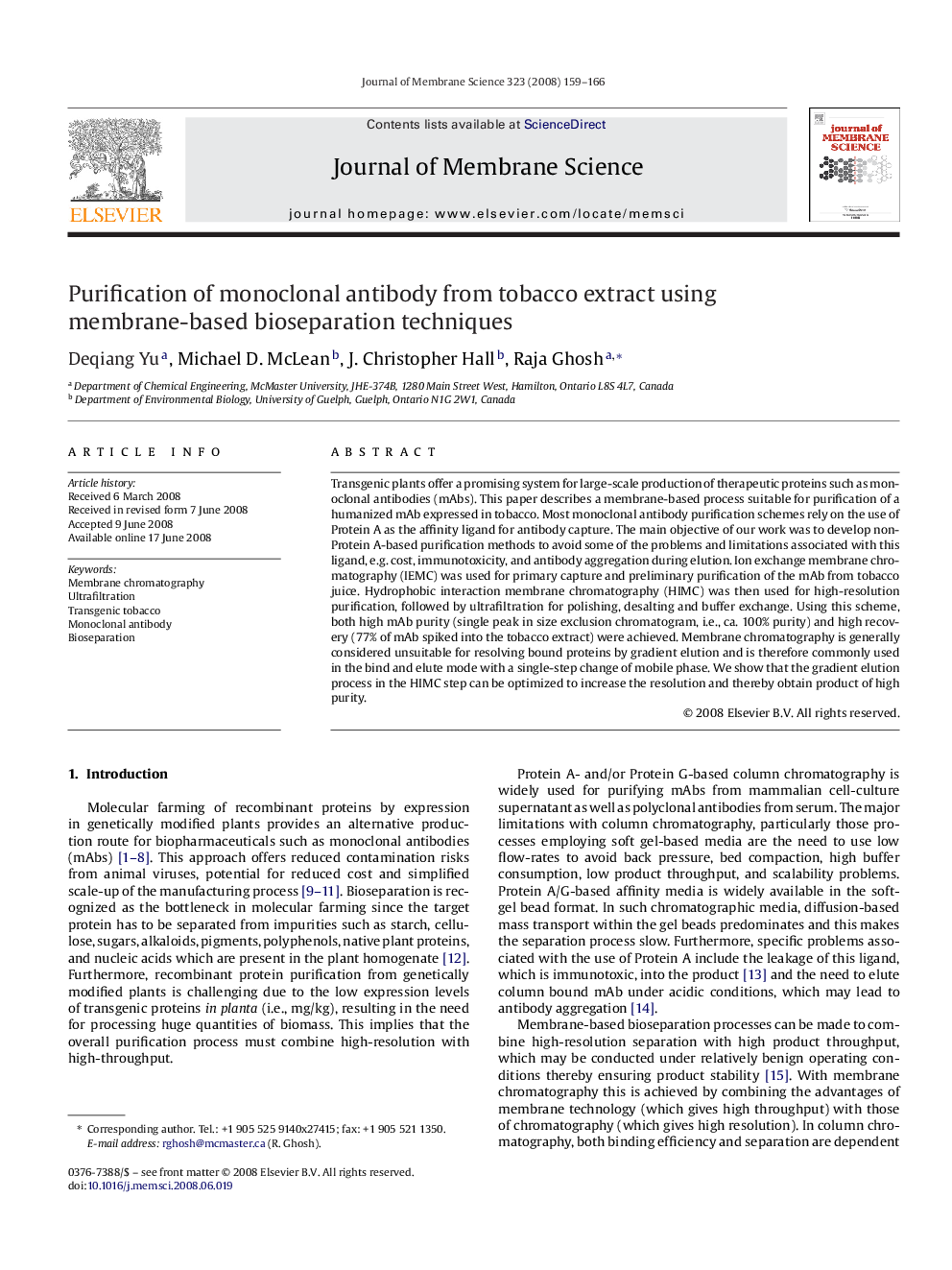| Article ID | Journal | Published Year | Pages | File Type |
|---|---|---|---|---|
| 637781 | Journal of Membrane Science | 2008 | 8 Pages |
Transgenic plants offer a promising system for large-scale production of therapeutic proteins such as monoclonal antibodies (mAbs). This paper describes a membrane-based process suitable for purification of a humanized mAb expressed in tobacco. Most monoclonal antibody purification schemes rely on the use of Protein A as the affinity ligand for antibody capture. The main objective of our work was to develop non-Protein A-based purification methods to avoid some of the problems and limitations associated with this ligand, e.g. cost, immunotoxicity, and antibody aggregation during elution. Ion exchange membrane chromatography (IEMC) was used for primary capture and preliminary purification of the mAb from tobacco juice. Hydrophobic interaction membrane chromatography (HIMC) was then used for high-resolution purification, followed by ultrafiltration for polishing, desalting and buffer exchange. Using this scheme, both high mAb purity (single peak in size exclusion chromatogram, i.e., ca. 100% purity) and high recovery (77% of mAb spiked into the tobacco extract) were achieved. Membrane chromatography is generally considered unsuitable for resolving bound proteins by gradient elution and is therefore commonly used in the bind and elute mode with a single-step change of mobile phase. We show that the gradient elution process in the HIMC step can be optimized to increase the resolution and thereby obtain product of high purity.
